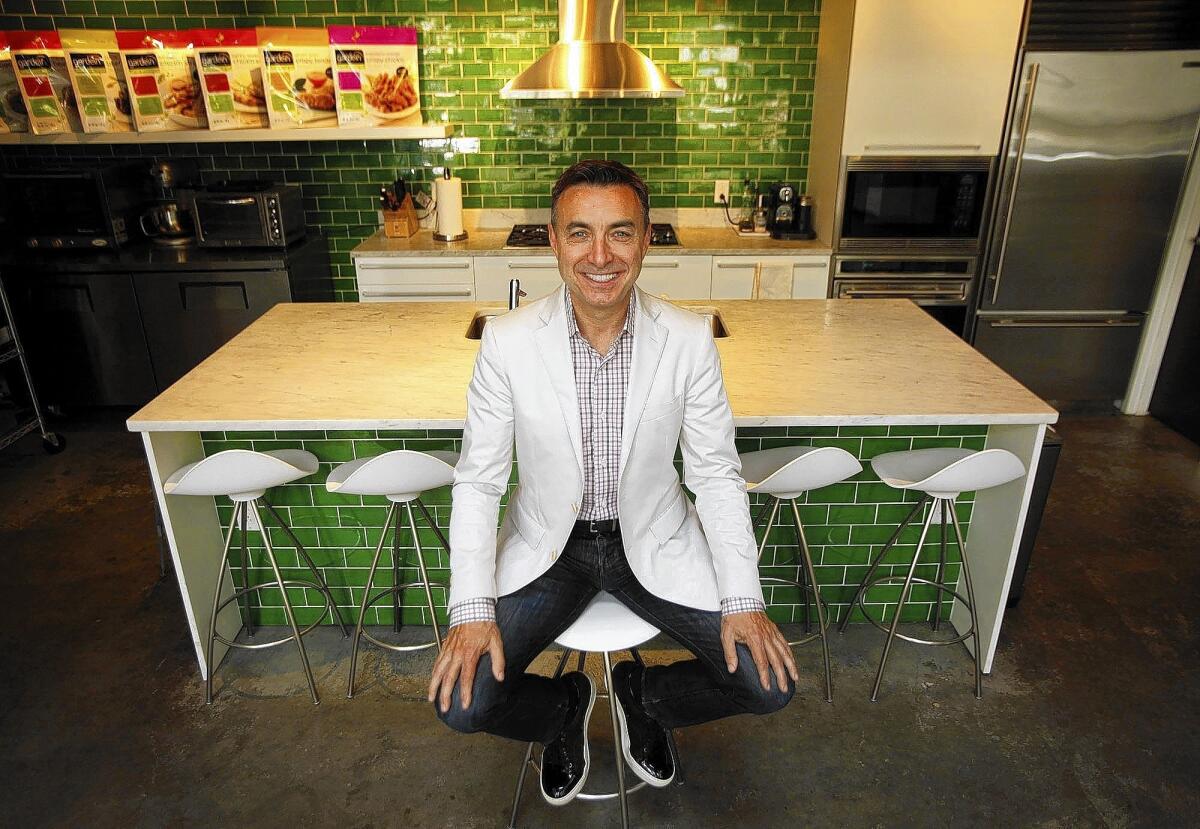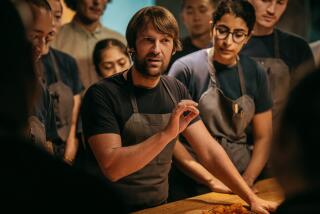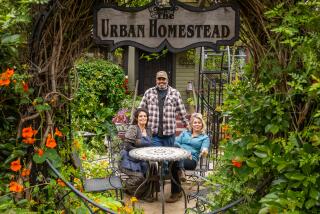How I Made It: How I Made It: Yves Potvin

The gig: Yves Potvin, 58, founded Garden Protein International, which is best known for its Gardein line of meat-free foods. Products by the private company, which has its U.S. headquarters in Marina del Rey, can be found in 22,000 North American supermarkets, pulling in nearly $100 million in sales each year at the retail level. Potvin helps manage Garden Protein but says the company’s executive team runs the business day to day. But even for a self-described “supporting character,” it’s still a “full-time job,” he said.
Just a small-town boy: Growing up near Quebec with two brothers and two sisters, Potvin played hockey, tennis and baseball. He sculpted, made stained glass and developed his own photos. In the mornings, he’d check in on the family horse. He was an altar boy. Entrepreneurial from a young age, he cleaned the floor at a store as a teen and bought himself a bike with his earnings. “There’s a certain pride and satisfaction in making your own money and having your independence,” he said. His mother, a homemaker, helped cover his paper route when he was sick. His father managed a paint shop for snowmobiles and dreamed of running his own business but found it “really tough to take the risk with five kids,” Potvin said.
Building blocks: Potvin spent just over a year studying architectural design, a discipline he chose because he wanted to be creative but not a starving artist. He also realized he didn’t want to end up behind a desk drafting plans for a firm. Told by guests at his dinner parties that he should cook professionally, Potvin spent three years in culinary school in Canada, figuring that even if he didn’t use his skills on the job, he would at least eat well for the rest of his life.
Go west: At age 25, Potvin helped open a French nouvelle restaurant 100 miles from Montreal. Two years later, he sold his share when his partner disagreed with his vision of a more gourmet eatery. One cold winter night, he dreamed about Vancouver — the California of Canada — and decided upon waking that he would move there. But he wanted to cycle across the country. He bought a $200 bike, trained for six weeks and set off in early summer, arriving 3,400 miles later in October. “The No. 1 quality of successful people in business is perseverance,” he said. “And I realized I’m a guy who perseveres.”
The Jane Fonda effect: During his journey, he found few markets selling convenient health food. But this was the 1980s, when jogging was the new craze, Jane Fonda’s aerobic movement was in full swing and mothers were too busy in the workplace to cook. “People who are successful in business look at what’s missing in their life,” he said. In Vancouver, he began studying Asian cuisine and discovered soy. He decided to use plant protein to make a more healthful version of the hot dog — a treat he had loved as a child but stopped eating because of its questionable meat sourcing and high cholesterol concentration.
World’s first veggie dog? Potvin tried putting tofu in casing — it was terrible, he said. Some sausage batches exploded in the oven because the casings were too tight. “It was months before I had a product that was decent enough to market,” he said. When he did, he started Yves Fine Food with $5,000 of his own money, $10,000 from his family and $25,000 in small-business loans. He began producing what he calls the world’s first veggie dog in a 500-square-foot facility using “antique” sausage-making equipment. He made $235,000 in sales to health food stores in the first year, then $600,000 the next. He learned a hard lesson when he was duped by a huckster offering machinery that didn’t exist. “If it’s too good to be true, there’s a 99.9% chance it’s not true,” he said. By the fourth year, he was up to $1 million in sales and moved into a new facility 10 times the size.
Moving on: Potvin sold the company in 2001. He and his research team developed a proprietary process for developing a meaty texture using flour and began making meat substitutes that could be served as entrees instead of as fillers for burger and hot dog buns. Garden Protein launched in 2003 out of Richmond, Canada, where it still keeps its international headquarters. “You need to find something that you love to do every day — the money will come, maybe,” he said.
Flexitarian: Potvin calls himself a “flexitarian,” like most of his consumers, he said. He eats fish, his 16-year-old daughter is a vegetarian, his 14-year-old son is a carnivore. The only food his entire family can consume is Gardein, he said. His favorite product at the moment is the company’s chicken sliders. On the testing table: more snack foods and a kung pao steamed bun.
Follow Tiffany on Twitter at @tiffhsulatimes
More to Read
Inside the business of entertainment
The Wide Shot brings you news, analysis and insights on everything from streaming wars to production — and what it all means for the future.
You may occasionally receive promotional content from the Los Angeles Times.







